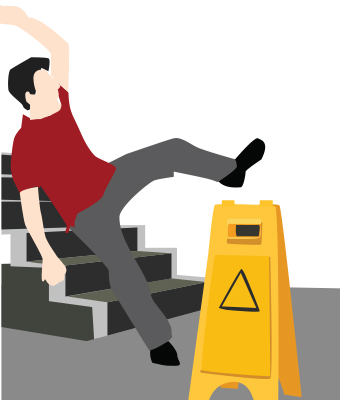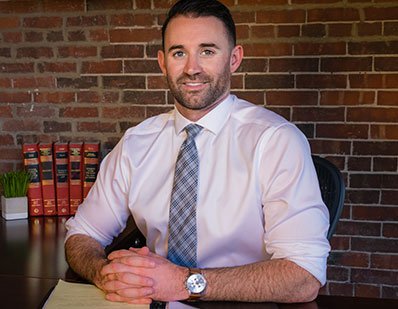 If you’re among the one million-plus people who ride the T in Boston each year, you know that trains, buses and people move fast and in close proximity, and that those who aren’t alert risk accident and injury.
If you’re among the one million-plus people who ride the T in Boston each year, you know that trains, buses and people move fast and in close proximity, and that those who aren’t alert risk accident and injury.
Given the widespread use of MBTA trains, trolleys and buses, there are relatively few public transportation accidents in Boston. But they do happen.
Bostonians will remember the May 2014 MTBA bus crash that injured the driver and seven passengers. The driver was alleged to have had a cellphone in her hand at the time of the wreck, and subsequently lost her job and her driver’s license.
This followed the derailment of the Green Line train at the Kenmore Station in March, which injured seven, and an elderly woman being hit by a MTBA bus in Uphams Corner in February 2014.
While certain accidents make headlines, many less-serious accidents also occur. These are incidents like slip and fall accidents on station platforms, stairs, and escalators that can cause serious harm like back and spine injury, head and traumatic brain injury (TBI) or broken bones.
When using public transportation, there are steps you can take to enhance your safety, including avoiding being injured in a criminal assault or robbery. Ideas to keep in mind include:
Crowded Conditions
 Many personal injury accidents occur because of crowded conditions, whether on a train or bus, in a station or on a platform. To avoid harm:
Many personal injury accidents occur because of crowded conditions, whether on a train or bus, in a station or on a platform. To avoid harm:
- Wear closed toe shoes, not flip-flops or sandals, to protect your feet. Wear flat shoes with non-slip soles, not high heels.
- Carry purses, portfolios and briefcases in a manner that will enable you to let go of them instead of being trapped by them and/or pulled and made to fall.
- Make a note of all the exits. If an emergency happens, stay calm, head for the nearest exit and listen for official instructions.
- Notify MBTA police immediately if you become separated from your child.
- Avoid crowded conditions if you can by altering your schedule.

Subway and Trains
For oncoming trains and others around you, and mindful that platforms are elevated and potentially dangerous sites.
- Don’t run on platforms and stay away from the edge of the platform.
- Hold children’s hands or make sure they stay next to you on the platform.
- Wait for the train to stop before stepping forward.
- Never lean over the edge of a platform to look for a train. Trains can approach from either direction.
- Never climb down onto subway tracks. If you drop something, tell a MBTA police officer, or train or station personnel.
- Don’t attempt to board a T train once the doors begin to close.
- Make sure that pocketbooks, knapsacks, clothing, packages, umbrellas, and other personal items are clear of the closing doors.
- Inside a moving train, never ride between cars or lean against doors. If you must stand, always hold on.

Bus Safety
- As a bus approaches, take a couple of steps back and wait for it to come to a complete stop before you move toward it.
- Don’t run for the bus; that’s how slips, trips and falls are most likely to happen.
- On the bus, stay behind the white line and avoid standing in the stairwell or leaning against the rear door.
- When traveling with an infant and a baby stroller, the stroller should be folded before entering the bus and should remain folded for the duration of the trip.
- Keep your head and arms inside bus windows.
- Signal the bus operator two blocks before your stop so that he or she has sufficient time to stop smoothly.
- Holding the railing as you exit the bus, especially in winter when bus steps and sidewalks can become slippery from snow.
- When on the street, never assume that a bus operator sees you. Lampposts, newsstands, double-parked vehicles and can cause blind spots and/or obscure the bus operator’s view.
Crime and Assault
 The MBTA advises patrons to protect themselves from becoming crime victims by staying alert and following a few proven crime prevention techniques, including:
The MBTA advises patrons to protect themselves from becoming crime victims by staying alert and following a few proven crime prevention techniques, including:
- Always be aware of your surroundings and the people around you.
- Avoid talking to strangers, especially in isolated areas.
- Hold purses tightly and close to your body. Put your wallet in a front pocket.
- If someone bothers you on a train, move to another seat or car and notify the train operator by using the intercom at either end of the train car.
- Try to avoid isolated bus stops. Stand near others and in well-lighted areas, and move to your bus as it arrives.
- During off hours, ride as close to the train or bus operator as possible.
- Leaving a train station, walk to your vehicle briskly and confidently. Scan the area as you walk and be aware of the people in the area. lf someone looks suspicious, go back to the station and notify the station agent.
When on a train, trolley or bus, we rely upon the operator to ensure our safety. But what you may not realize is that while at a station or on a platform, MBTA officials have a responsibility for your safety, too. Though you must act in a reasonable manner to keep yourself out of harm’s way, if you are injured in an accident on MBTA property because of someone else’s negligence, you have a right to hold them accountable.
You may be eligible for compensation for your medical bills, lost wages, and pain and suffering after an accident while riding an MBTA train, subway bus or trolley, or while on any MBTA property.
Michael Kelly Injury Lawyers MBTA accident lawyers can assist and advise you about making a claim for compensation after a public transportation accident. If you have suffered a mishap, contact the attorneys of our Boston office to set up a free initial consultation about the legal options available to you.


